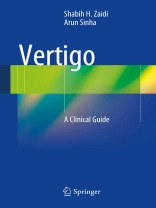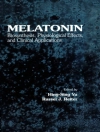This monograph on vertigo is based on the personal, hands-on, practical and clinical experience of managing vertigo in a large university-affiliated hospital. It covers all aspects of the subject, offering the latest information on epidemiology, aetiopathogenesis, diagnostics, the battery of vestibular and allied tests, treatment, rehabilitative management and ethical considerations. The neglected but substantial problem of paediatric vertigo is addressed, as are the many pathologies in the elderly population that can lead to disequilibrium and repeated falls. This book will prove of value to a range of practitioners, including family physicians, otologists, audiologists, vestibular scientists, neurologists, paediatricians, geriatricians, physiotherapists, rehabilitation therapists and general doctors, as well as medical and nursing students.
สารบัญ
Chapter 1: Nomenclature, Epidemiology & applied basic sciences.- Physiology and Anatomy.- Neurotransmitters.- Vestibulo-ocular reflex.- Cerebellar Tests.- History and Clinical examination.- Nystagmus.- Romberg’s test/ Dix- Hallpike test etc.- Radiology.- Vestibular tests.- Audiometry.- Chapter 2: Clinical conditions.- Meniere’s disease.- BPPV.- Vestibular migraine.- Cervical vertigo.- Acoustic neuroma.- Perilymph fistula.- Vestibular neuritis.- Epidemic Labyrinthitis.- Travel sickness.- Ototoxicity.- Chronic Suppurative Otitis Media.- Central Causes :TIA, Multiple Sclerosis.- Noise.- Vertigo in children.- Miscellaneous conditions.- Chapter 3: Rehabilitation.- Vertigo in the elderly.- Quality of life.- Ethical issues.












